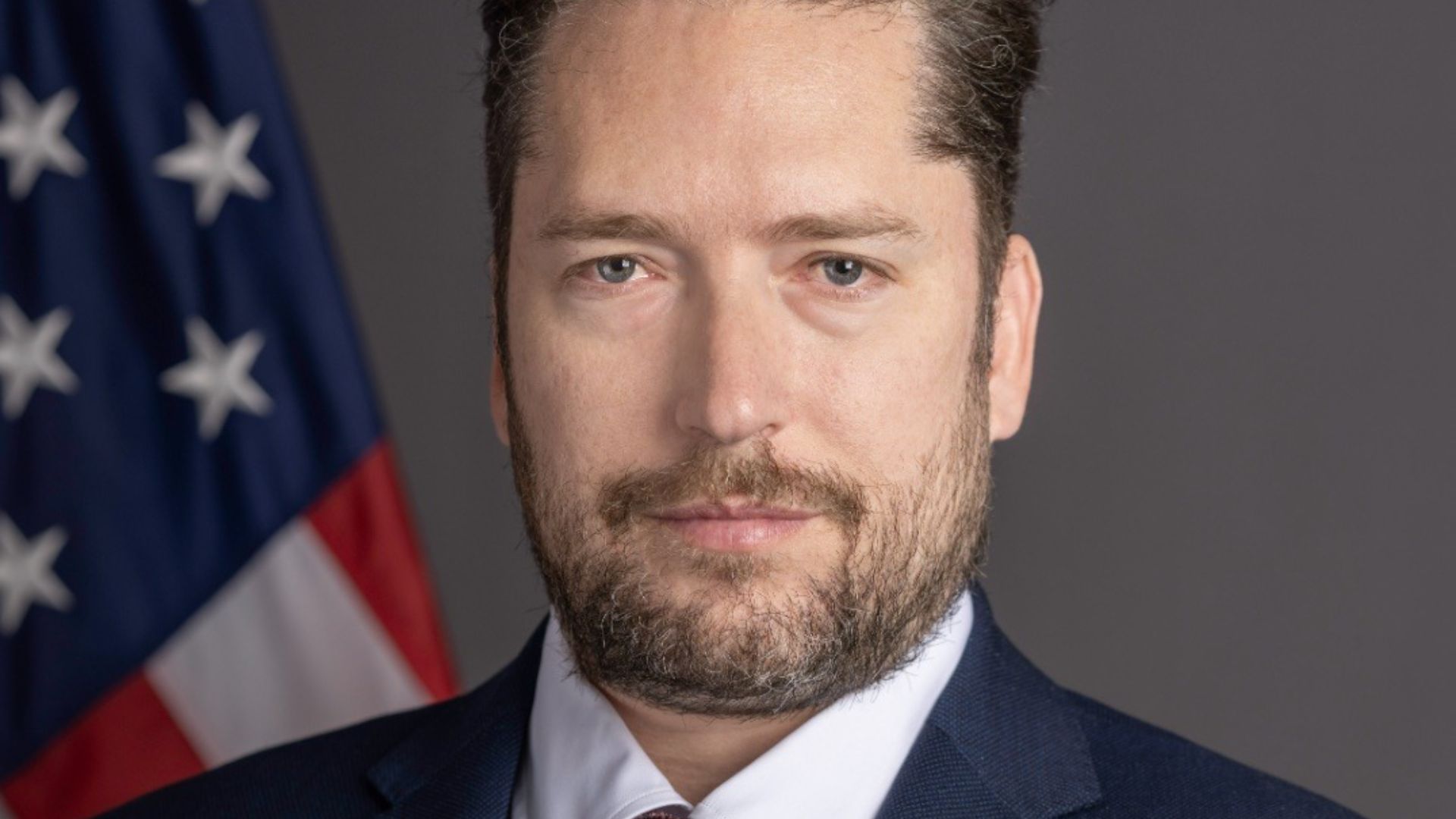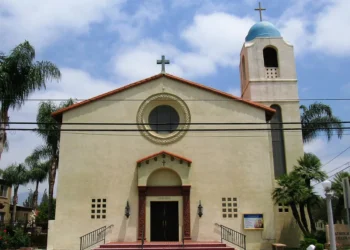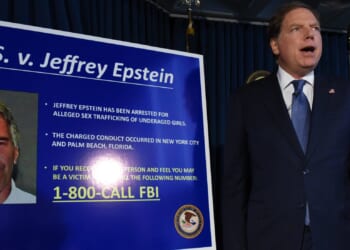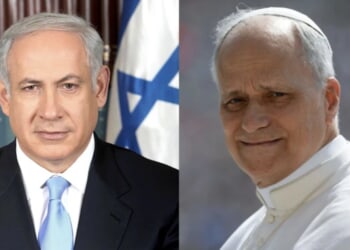
Darren J. Beattie was named the new Acting President of the United States Institute of Peace (USIP) following approval from Secretary of State Marco Rubio and Secretary of Defense Pete Hegseth.
The appointment was formalized through a resolution by the USIP Board of Directors, marking a significant leadership change for the organization.
The resolution acknowledges the resignation of Nate Cavanaugh, who had served as Acting President of USIP.
Trump’s Sovereign Wealth Fund: What Could It Mean For Your Money?
The board expressed appreciation for Cavanaugh’s service before moving forward with Beattie’s appointment.
Under 22 U.S.C. § 4606(a), the USIP Board of Directors has the authority to appoint the president and other officers as deemed necessary, a provision utilized in this decision.
🚨 Huge News In DC Today 🚨 After sign-off this morning from Secretary Rubio & Secretary Hegseth, DARREN BEATTIE (@DarrenJBeattie) has just become the new President of the US Institute of Peace! pic.twitter.com/F22pQEzqZy
— Mike Benz (@MikeBenzCyber) July 25, 2025
This Could Be the Most Important Video Gun Owners Watch All Year
Beattie brings a background that includes prior roles in government and the private sector.
He will assume leadership of an organization that has faced scrutiny over allegations of corruption and unauthorized foreign policy activities.
The USIP, established to promote peaceful conflict resolution, has been a focal point of recent controversy, with reports highlighting financial mismanagement and questionable international dealings.
Mike Benz shared details about the challenges Beattie will inherit.
The USIP has been plagued by accusations of corruption, including claims of misappropriated funds and covert foreign policy initiatives.
Beattie has outlined plans to rebuild the institute “from the ground up,” aiming to address the organization’s troubled past and restore its original mission.
.@DarrenJBeattie will be inheriting the reins of the influential but deeply wayward USIP, which has been beset by allegations of corruption and unauthorized covert foreign policy. Beattie’s vision is to rebuild USIP “from the ground up,” ditching the baggage of its troubled past pic.twitter.com/LreO5k8pXr
— Mike Benz (@MikeBenzCyber) July 25, 2025
Benz provided further insight into Beattie’s expanded responsibilities was provided.
In addition to his new role at USIP, he will continue to serve as Under Secretary of State for Public Diplomacy.
In this capacity, Beattie has led significant reforms, including the closure of the Global Engagement Center (GEC) and recent efforts to address free speech issues in Brazil.
He will also retain his position as head of the State Department’s Bureau of Educational and Cultural Affairs, indicating a broad scope of influence across multiple diplomatic and cultural initiatives.
While USIP President @DarrenJBeattie will remain Under Secretary of State for Public Diplomacy, where Beattie has led sweeping free speech reforms, including shutting down GEC & the recent push on Brazil. He will also stay head of State’s Bureau of Educational & Cultural Affairs pic.twitter.com/NoCyRKAMDT
— Mike Benz (@MikeBenzCyber) July 25, 2025
The appointment has drawn attention due to Beattie’s previous tenure as a White House speechwriter and policy aide, as well as his work as a media entrepreneur and political strategist.
The Biden Regime threw everything at us, and we’re still standing stronger than ever
Thanks to everyone who has supported us at Revolver News
We have some unfinished business, and the best is yet to come… pic.twitter.com/67or1bJhw3
— Darren J. Beattie 🌐 (@DarrenJBeattie) December 12, 2024
His selection reflects a strategic move by the current administration to place a figure with a strong governmental background at the helm of USIP during a period of transition and reform.
The USIP, funded annually with approximately $55 million from Congress, operates as an independent nonprofit tasked with studying peaceful resolutions to global conflicts.
Recent actions by the Trump administration, including the suspension of foreign aid programs and the restructuring of related institutions, have set the stage for Beattie’s leadership.
His dual roles and reform agenda suggest a concerted effort to realign the institute’s operations with its congressional mandate.
As Beattie prepares to take on these responsibilities, the USIP’s future direction remains a topic of interest.
The organization’s board, which includes high-profile figures like Rubio and Hegseth, will oversee the transition, with Beattie’s vision expected to shape the institute’s approach in the coming months.
Further developments are anticipated as he begins his tenure.



![Former Bravo Star Charged After Violent Assault Using a Rock-Filled Sock in Tennessee Walmart [WATCH]](https://www.right2024.com/wp-content/uploads/2025/07/Former-Bravo-Star-Charged-After-Violent-Assault-Using-a-Rock-Filled-350x250.jpg)



![NYC Man Snatches Child Off The Sidewalk, Parents Chase Him Down [WATCH]](https://www.right2024.com/wp-content/uploads/2025/07/NYC-Man-Snatches-Child-Off-The-Sidewalk-Parents-Chase-Him-350x250.jpg)
![Karoline Leavitt Levels CNN's Kaitlan Collins and Other Legacy Media Reporters [WATCH]](https://www.right2024.com/wp-content/uploads/2025/07/Karoline-Leavitt-Levels-CNNs-Kaitlan-Collins-and-Other-Legacy-Media-350x250.jpg)
![Man Arrested After Screaming at Senators During Big Beautiful Bill Debate [WATCH]](https://www.right2024.com/wp-content/uploads/2025/06/Man-Arrested-After-Screaming-at-Senators-During-Big-Beautiful-Bill-350x250.jpg)

![Leftists Lose Their Minds After Jason Kelce Celebrates Being an American [WATCH]](https://www.right2024.com/wp-content/uploads/2025/07/Leftists-Lose-Their-Minds-After-Jason-Kelce-Celebrates-Being-an-350x250.jpg)





